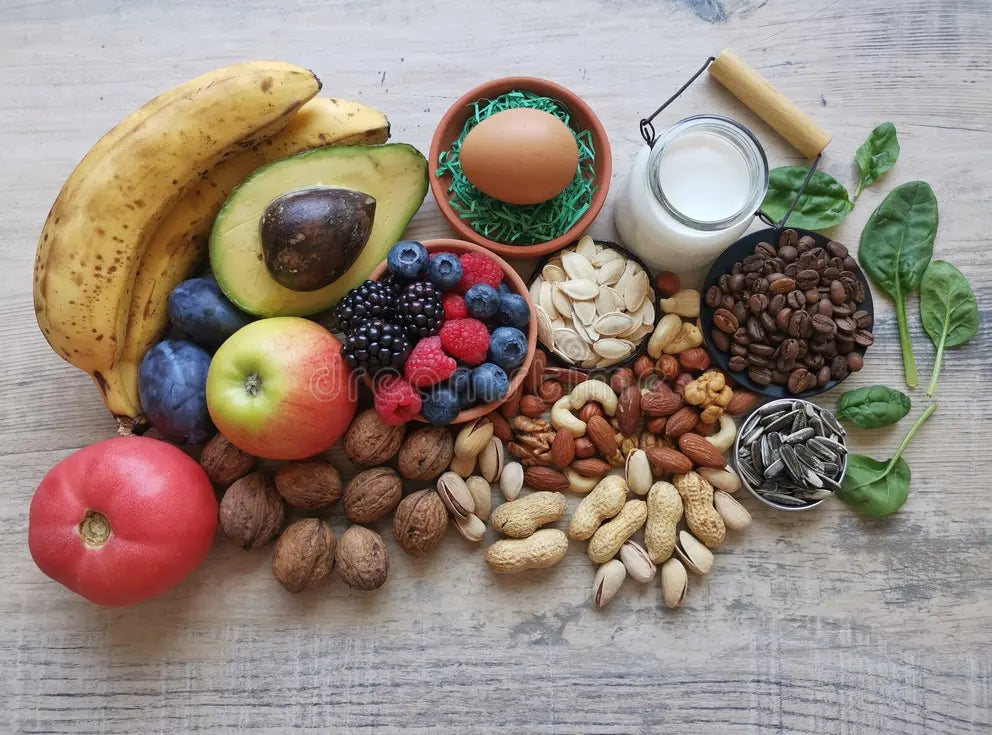Fueling Your Brain: A Dive into Foods High in Dopamine to Boost Well-Being
The quest for optimal well-being encompasses various facets of our lives, including the foods we consume. While the brain's neurotransmitters play a pivotal role in shaping our mental and emotional states, dopamine stands out as a key player in the realm of pleasure, motivation, and overall happiness. Unveiling the connection between food and dopamine levels opens a fascinating avenue for enhancing our mood and cognitive functions. In this exploration, we delve into the world of foods rich in precursors and cofactors that support dopamine production, providing a roadmap for those seeking to nourish their brains and uplift their spirits.
The Dopamine Connection: A Brief Overview
Understanding Dopamine’s Role
Dopamine is a neurotransmitter that serves as a chemical messenger in the brain. It is involved in numerous crucial functions, including the regulation of mood, motivation, learning, and motor control. Maintaining balanced dopamine levels is essential for overall well-being.
Dopamine Precursors and Cofactors
Certain nutrients serve as precursors and cofactors in the synthesis of dopamine. Tyrosine, an amino acid, is a direct precursor to dopamine, while other nutrients like vitamin B6, folate, and iron play crucial roles as cofactors in the enzymatic processes that convert precursors into dopamine.
Foods Rich in Dopamine Precursors
Tyrosine-Rich Foods
Tyrosine is a key building block for dopamine. Foods high in tyrosine include:
Protein-Rich Sources: Protein-Rich Sources: Chicken, turkey, lean beef, fish, eggs, and dairy products are excellent sources of tyrosine.
Plant-Based Options: Almonds, avocados, soy products, and seeds like pumpkin and sesame seeds are tyrosine-rich plant-based alternatives.
Phenylalanine-Containing Foods
Phenylalanine is another amino acid that serves as a precursor to tyrosine, and subsequently, dopamine. Foods rich in phenylalanine include:
Dairy Products: Milk, Cheese, and Yogurt
Meat: Beef, Chicken, Pork, and Fish
Legumes: Peas, Lentils, and Beans
Foods Rich in Dopamine Cofactors
Vitamin B6
Vitamin B6 is crucial for converting tyrosine into dopamine. Foods high in vitamin B6 include:
Poultry: Chicken and Turkey
Fish: Tuna, Salmon, and Trout
Plant-Based Sources: Potatoes, Bananas, and Fortified Cereals
Folate (Vitamin B9)
Folate plays a role in the conversion of L-DOPA to dopamine. Foods rich in folate include:
Leafy Greens: Spinach, Kale, and Collared Greens
Legumes: Lentils, Chickpeas, and Black-Eyed Peas
Citrus Fruits: Oranges, Grapefruits, and Lemons
Iron
Iron is essential for the enzymatic processes involved in dopamine synthesis. Foods high in iron include:
Red Meat: Beef, Lamb, and Pork
Poultry: Chicken and Turkey
Plant-Based Sources: Lentils, Beans, and Fortified Cereals
Lifestyle Strategies for Dopamine Optimization
Balanced Nutrition
Incorporating a variety of foods that provide the necessary precursors and cofactors for dopamine synthesis ensures a well-rounded approach to supporting optimal brain function.
Regular Exercise
Physical activity has been shown to increase dopamine levels. Engaging in regular aerobic exercises, such as running, cycling, or swimming, can positively impact mood and overall well-being.
Adequate Sleep
Quality sleep is crucial for maintaining balanced neurotransmitter levels, including dopamine. Establishing a consistent sleep routine and ensuring sufficient rest contribute to overall brain health.
Stress Management
Chronic stress can deplete dopamine levels. Incorporating stress management techniques such as meditation, deep breathing exercises, and mindfulness can help maintain a healthy balance.
As we navigate the intricate relationship between food and dopamine, it becomes evident that our dietary choices play a significant role in shaping our mental and emotional states. By incorporating foods rich in dopamine precursors and cofactors into our meals, we empower ourselves to support optimal brain function and enhance overall well-being.

